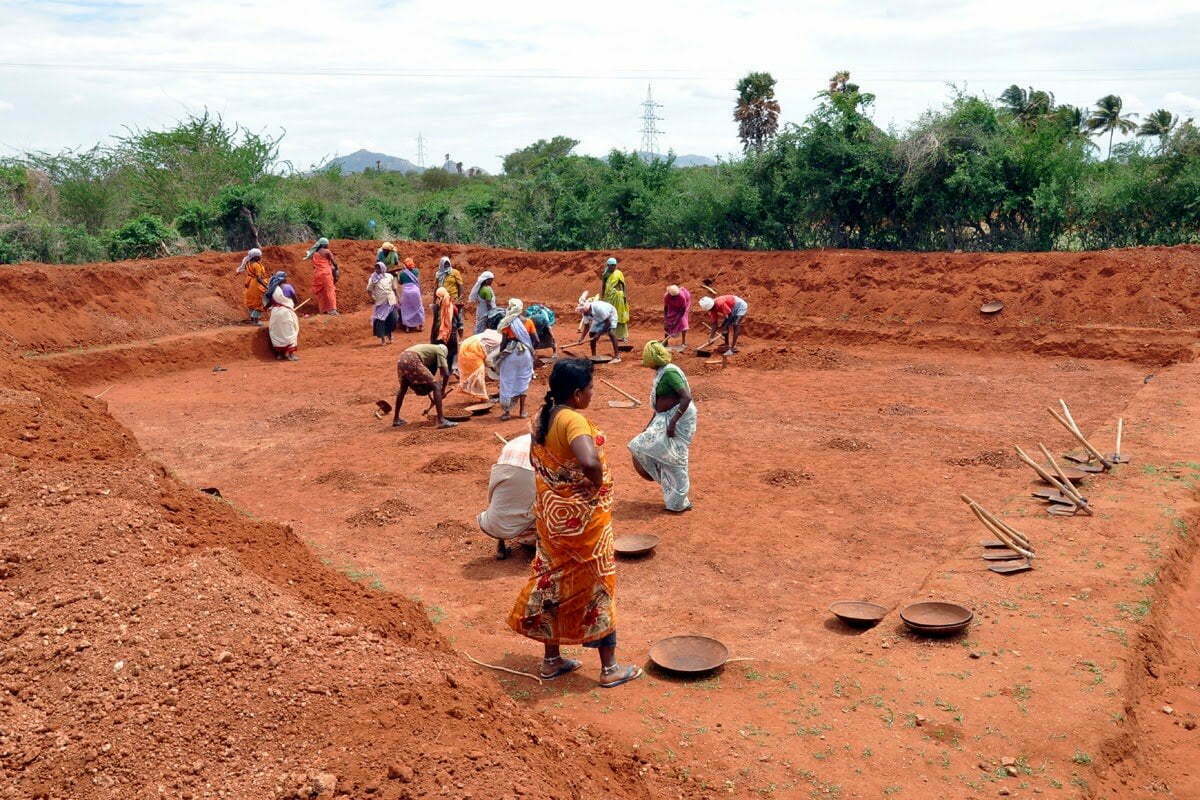Published in: August 2019
Due to climate change and insufficient rainfall, groundwater levels are steadily declining. To address this, it’s essential to store the limited rainwater effectively. Farmers are encouraged to implement various techniques to conserve rainwater, including constructing deep and wide channels, building raised bunds, desilting water bodies, installing check dams, and creating circular pits around trees. Additionally, establishing farm ponds on agricultural lands has become crucial for sustainable water conservation.
A farm pond allows for the collection and storage of runoff water, preventing soil erosion, protecting soil fertility, and reducing flood risks during heavy rains. The surrounding area benefits from a cooler microclimate, helping to counteract global warming. Without such water conservation efforts, future generations may face severe water scarcity. Hence, farm ponds provide an excellent means for capturing rainwater.
Setting Up a Farm Pond
On one acre of land, farmers should allocate at least one cent of land (approximately 435.6 square feet) for a farm pond, with a depth of 1.5-2.0 meters. In larger areas, farm ponds can cover up to ten cents. Ideally, they should be constructed along the farm boundary or in the field’s center, especially in lower-lying areas. A one-cent farm pond can store up to 60,000 liters of water.
A farm pond can capture around 15 mm of rainfall, and its water retention capacity varies with soil type. By collecting rainwater directly where it falls, farm ponds prevent rainwater from being wasted. Each farm pond effectively serves as a small reservoir.
Constructing farm ponds near long-term crops like sugarcane, banana, cashew, coconut, and jackfruit helps protect these plants from drought-induced damage. Furthermore, growing fruit trees such as lemon, sapota, jamun, and guava along the pond’s banks can generate additional income. Farmers using wells or tube wells for irrigation are advised to allocate five percent of their land for a farm pond and can benefit from this investment within a year.
Therefore, it is recommended that all farmers construct farm ponds on their land to benefit themselves and the community.
Dr. M. Suganti, Dr. A. Ilango, S.T. Selvan, Postgraduate Research Centre in Animal Sciences, Kattupakkam, Kanchipuram – 603 203.










